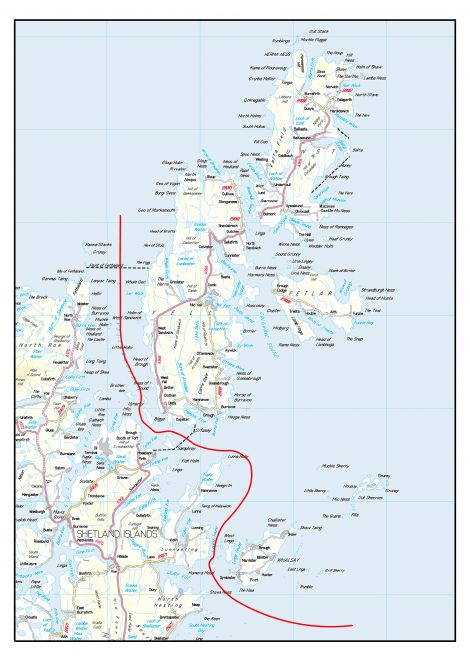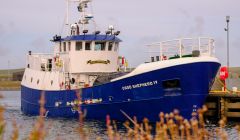News / SIC welcomes review of electoral ward boundaries
The move is part of the recently established Islands Act.
A REVIEW into the electoral arrangements of six councils including Shetland – which could see one or two member wards introduced in areas with inhabited islands – has been welcomed locally.
Local Government Boundary Commission for Scotland is required to review the six councils as part of the recently introduced Islands Act to explore numbers of councillors and internal boundaries of wards.
Shetland Islands Council convener Malcolm Bell said the local authority is pleased to take part in the review because the new islands bill provides flexibility on the number of councillors for wards in which there are inhabited islands.
At the moment, Shetland’s 22 elected councillors are spread across seven wards and while the North Isles has its own ward, the remote Fair Isle is submerged into the south mainland section and Foula and Papa Stour are represented by west side members.
“The review of electoral ward boundaries, to take into account the particular circumstances of our smaller inhabited islands, was one of our asks during development of the islands act,” Bell said.
“We are pleased that the Local Government Boundary Commission has announced its timetable, note that Shetland will be in the initial phase of their work and that any change to electoral arrangements in the islands should be in place for the next election in 2022.
“We look forward to engaging with the commission during their work.”
Legislation stated that each council ward in Scotland returned three or four elected members, but the commission now has the power to recommend election of between one to four councillors where a ward contains an inhabited island.
One problem faced by local councillors covering wards with islands is that travelling between their constituents – like in the North Isles, which includes Unst, Yell, Fetlar, Whalsay and Skerries – can become a problem.
The commission’s review – which will consist of consultation with the councils and the public – will be conducted in two phases from the spring, with Shetland, Orkney and the Western Isles the first to explored.
It will then move onto Argyll and Bute, Highland and North Ayrshire.
Commission chairman Ronnie Hinds said: “The islands make a unique contribution to Scotland but island communities face distinctive challenges and the new flexibility will help us recognise that while respecting the other requirements of an electoral review.”
Become a member of Shetland News
Shetland News is asking its readers to consider paying for membership to get additional perks:
- Removal of third-party ads;
- Bookmark posts to read later;
- Exclusive curated weekly newsletter;
- Hide membership messages;
- Comments open for discussion.
If you appreciate what we do and feel strongly about impartial local journalism, then please become a member of Shetland News by either making a single payment, or setting up a monthly, quarterly or yearly subscription.



















































































